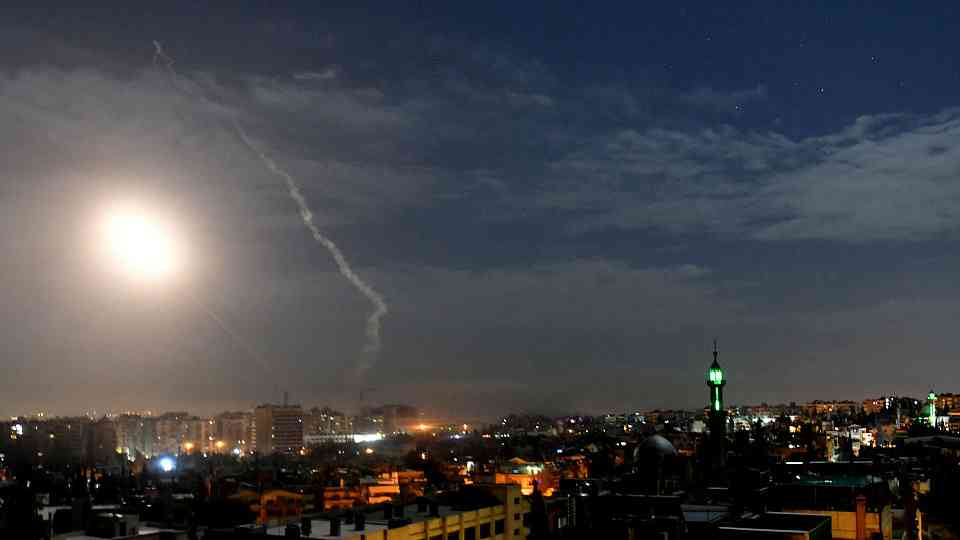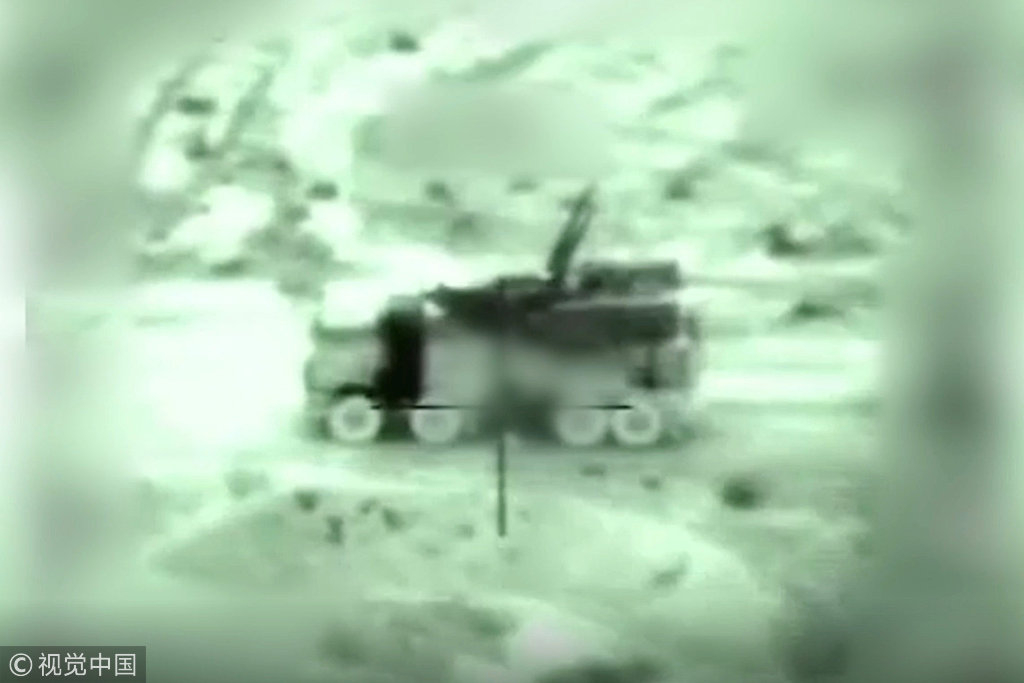
Opinion
16:49, 26-Jan-2019
Opinion: The increasing Israel-Iran rivalry in Syria
Wang Jin

Editor's note: Wang Jin is a research fellow at the Charhar Institute. The article reflects the author's opinion, and not necessarily the views of CGTN.
A new round in the fight between Israel and Iran erupted in Syria this Monday, where Israel's airstrikes resulted in several deaths and the destruction of Iranian military installations.
Israel has been closely watching the situation in Syria for years and detected an increasing Iranian military presence in areas adjacent to Israel last month, according to local media.
In retaliation to an Iranian missile fired at the Golan Heights, Israel carried out a slew of airstrikes against Iranian targets, including warehouses at the Damascus International Airport.
Israel has been on high alert concerning Iran's influence in Syria. Since the outbreak of the Syrian crisis in 2011, Tehran has been a major supporter of Bashar al-Assad's government, Iranian Islamic Revolutionary Guards (IRG) and other Shia militias in opposition to Syrian rebels.

A still image taken from video footage released by the Israeli army shows an Israeli missile going to hit a Syrian air-defense target, January 21, 2019. /VCG Photo
A still image taken from video footage released by the Israeli army shows an Israeli missile going to hit a Syrian air-defense target, January 21, 2019. /VCG Photo
This has raised Israel's anxiety level. Perceiving Iran's presence in Syria as a major threat, Israel has been requiring Russia to constrain Tehran's influence in the region.
Israel is playing a sensitive but active role in the Syria issue. The country cannot join Syrian peace talks given its Jewish-dominated national identity. It can only voice its concerns with the assistance of other powers, especially the U.S. and Russia.
But neither Washington nor Moscow is willing to engage in direct confrontation against Iran. As a result, the Israeli government had no other choice but to launch direct military strikes against Iranian targets to demonstrate its opposition to the country's presence in the region.
Washington's lack of willingness to get overly involved in the Syria issue has further stretched Israel's nerve, especially after Donald Trump announced U.S. withdrawal from the region.
Worse still, despite Moscow's repeated assurances that Iranian forces would not threaten the Israeli border, the IRG and other Shia militias in Syria are believed to have received orders from Tehran and Qasem Soleimani, the commander of Al-Quds brigade of IRG, instead of Moscow.
In the meantime, Iran's hostility against Israel is intensifying. The IRG and other Shia militias are using the need to "prevent the Israeli threat" as an excuse for their presence in Syria.
Iran-Israel armed conflicts are an escalation of their long-term spats in the region. Israel's attacks not only destroyed Iranian military installations, but also intensified Iran's hostilities against Israel.
Gaining no practical assurance from regional powers, Israel has no other choice but to launch strikes to deter Iran. In the meantime, Iran has to strengthen its presence in Syria to show its unyielding stance against Israel. Syria, as a result, has descended into a wrestling ring for the two countries.
(If you want to contribute and have specific expertise, please contact us at opinions@cgtn.com)

SITEMAP
Copyright © 2018 CGTN. Beijing ICP prepared NO.16065310-3
Copyright © 2018 CGTN. Beijing ICP prepared NO.16065310-3